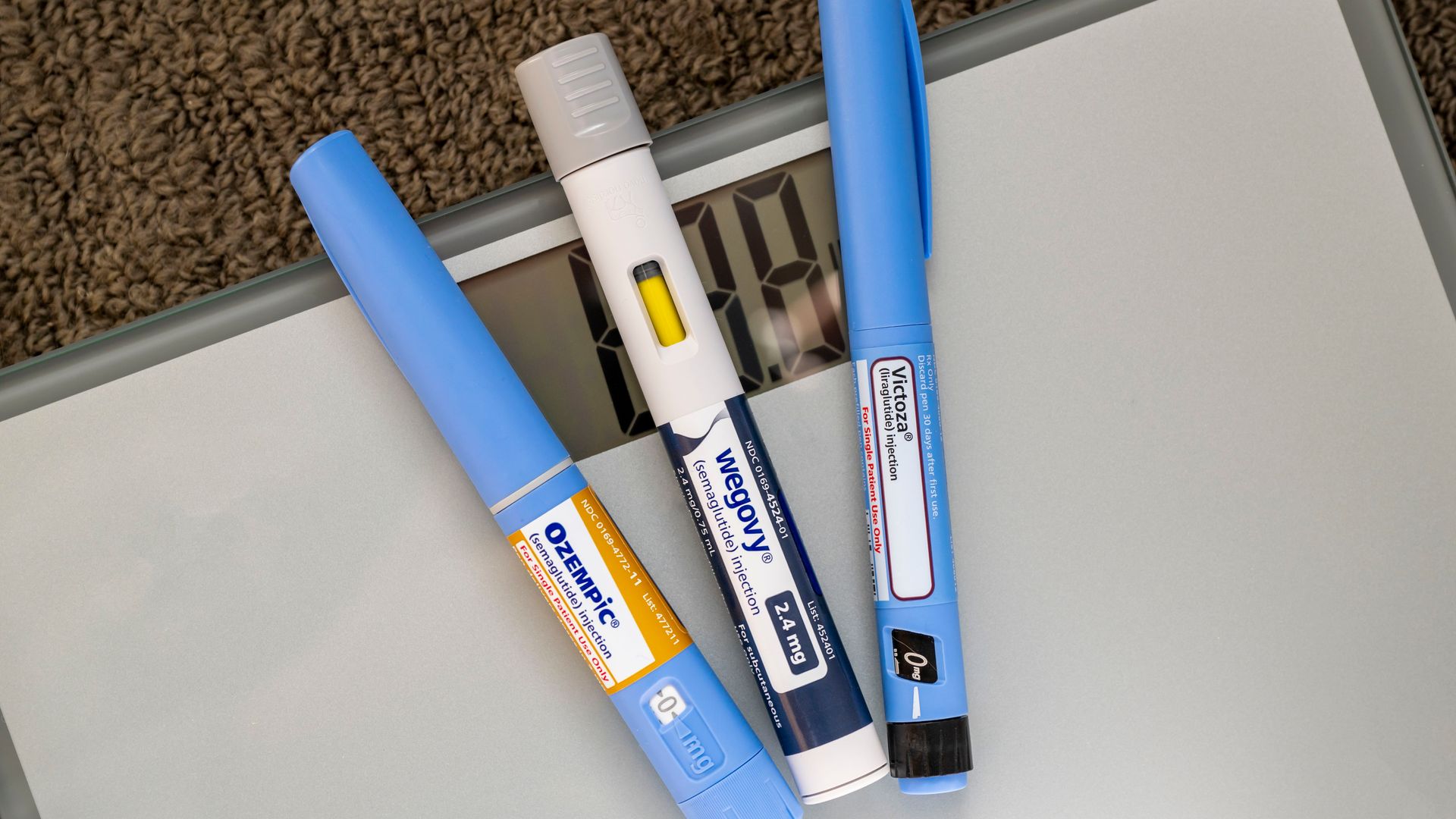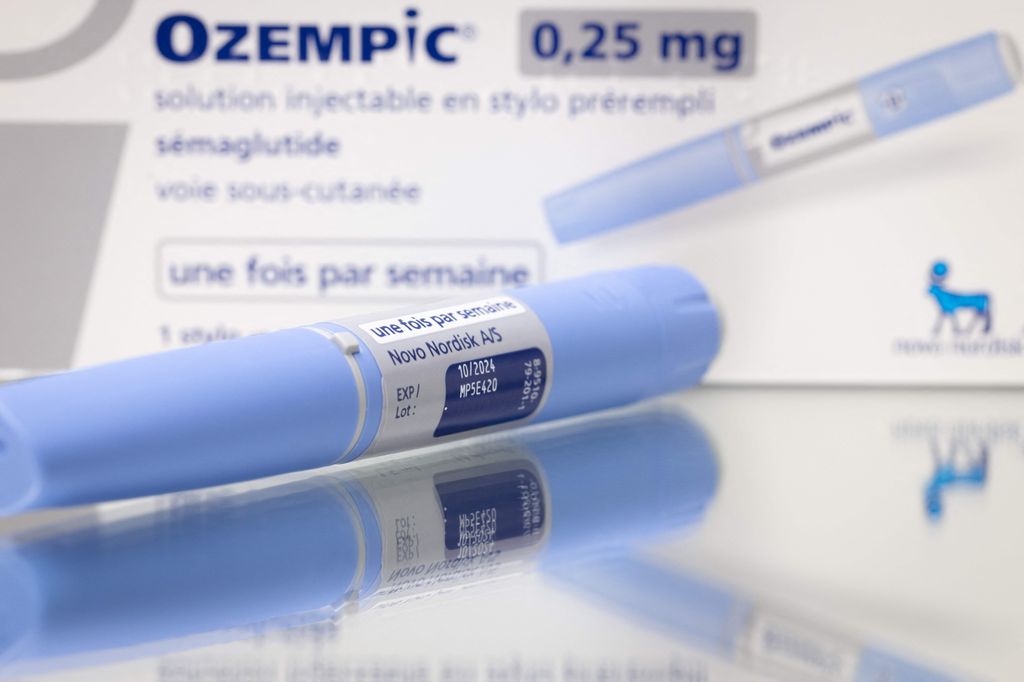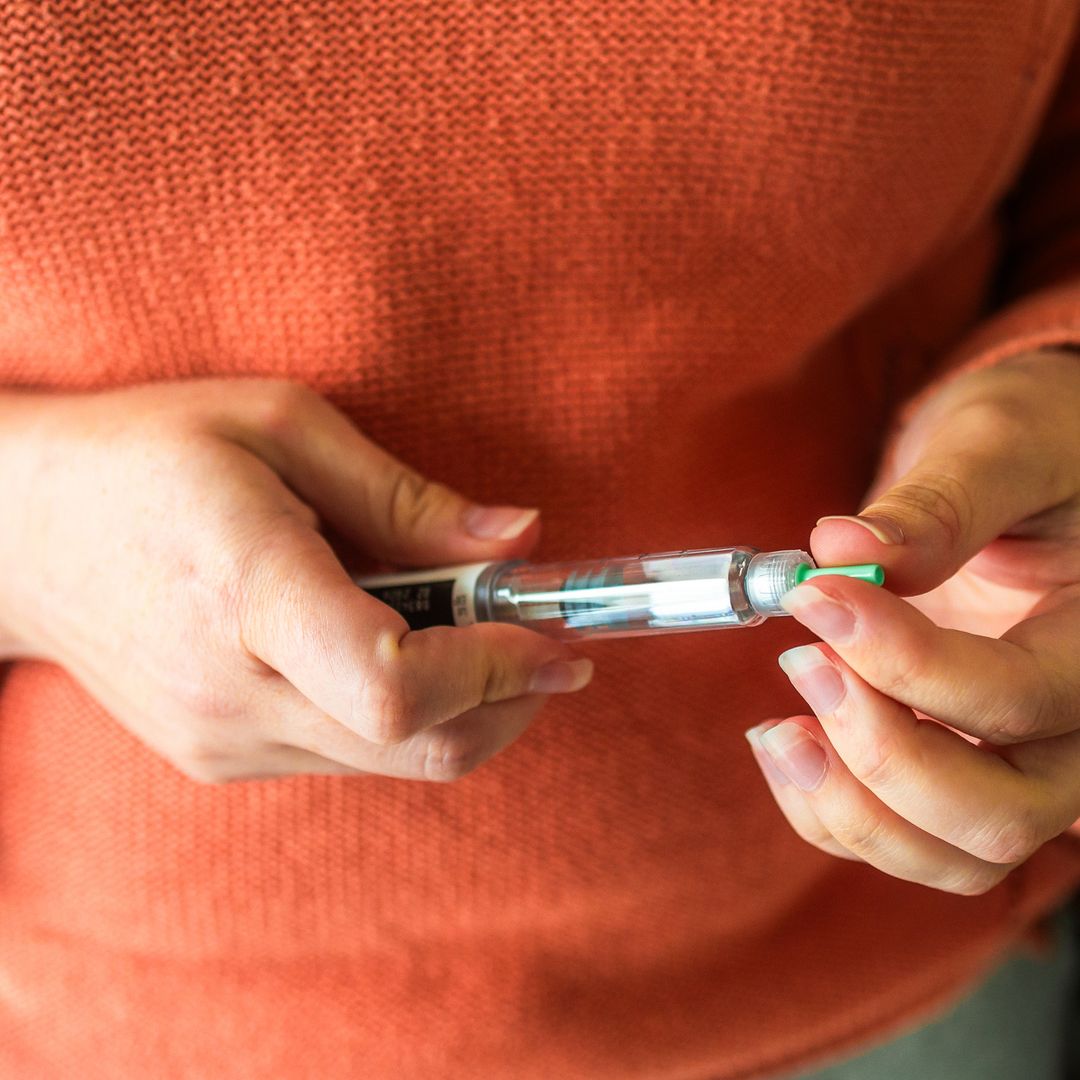It’s the weight loss trend that’s taken over Hollywood, social media and now the NHS. From Oprah to Elon Musk, and influencers racking up millions of views on TikTok, weight loss injections are everywhere. Once reserved for people with type 2 diabetes, GLP-1 medications like Ozempic, Wegovy and Mounjaro have exploded into the mainstream, and they’re not just changing waistlines, but the way we talk about hunger, cravings and metabolism itself. Whether you’ve seen the dramatic transformations online, heard friends talk about 'the jab', or are simply curious about how these drugs work, one thing’s clear: weight loss injections are becoming increasingly popular. So what are these injections, how do they work, and are they safe? HELLO! asked the experts to break down the facts, clear up the confusion and explain how they fit into a healthy lifestyle. That said, always speak to your GP or healthcare provider before starting any weight loss medication. These are prescription-only medicines, and they’re not suitable for everyone.
What are weight loss injections, and how do they work?
At their core, weight loss injections are medicines that mimic a hormone your gut already produces, GLP-1, which helps regulate blood sugar and appetite. When injected weekly or daily, depending on the brand, these medications slow down how quickly food leaves your stomach and signal to your brain that you’re full earlier. The result? You feel less hungry, less often, and more in control around food.
"They slow the stomach emptying and act on appetite centres in the brain," explains Sydney-based GP Dr Angela Kwong, who specialises in obesity management. "These medicines help reduce cravings, food noise and snacking between meals. They also slow digestion in the lower part of the gut too, so satiety lasts longer."
There are a few options on the market, and while they all do similar things, there are some important differences. Ozempic and Wegovy both contain semaglutide, but Wegovy is licensed specifically for weight loss, whereas Ozempic was originally for diabetes. Mounjaro (brand name for Tirzepatide) is a newer medication that works on two hormones GLP-1 and GIP, which may make it even more effective. Saxenda is another option that’s taken daily rather than weekly and uses liraglutide, a different GLP-1 analogue.
"The medications vary in how they’re administered, their side effect profiles and how much weight loss can be expected,” adds Dr Kwong. “But they all aim to make it easier for patients to stick to healthier portions and food routines."
Are they effective?
In short: yes. Clinical trials have shown remarkable results. Wegovy has been associated with an average 15 percent loss in body weight, while Mounjaro has shown reductions of 20 percent or more. But the numbers only tell part of the story.
"These levels of weight loss are linked with genuine health improvements," says Dr Kwong. "We see reductions in blood pressure, cholesterol, blood sugar levels, sleep apnoea symptoms, and even fertility outcomes." And for many patients, it’s not just physical health that improves, it’s their entire relationship with food.
"People often tell me their food chatter quietens, they don’t feel constantly distracted by cravings, and they can finally focus on building sustainable habits," Dr Kwong explains. "This medication creates a window of opportunity to make long-term changes – and when used correctly, that can be transformative."
Chris Hughes, an Accredited Practising Dietitian, agrees. "Too often, people blame themselves for not having enough willpower. But weight gain is rarely just about willpower – it’s driven by biology. These medications help address that physiology."
But they aren’t magic wands. Chris warns that taking injections without paying attention to nutrition can backfire. "These drugs reduce your appetite, but if you’re skipping meals or eating nutritionally poor foods, you risk low energy, nutrient deficiencies, muscle and bone loss, and even mental health issues. The best outcomes happen when you pair your medication with a nutrient dense diet."
Are they safe? What are the risks?
As with any medication, weight loss injections do come with potential side effects. The most common include nausea, bloating, constipation, diarrhoea and reflux, particularly when doses are increased too quickly. But for many patients, these settle with time.
"Most of the initial symptoms ease as the body adapts," says Dr Kwong. "Eating smaller meals, staying hydrated and increasing the dose slowly can really help."
Less common, but more serious, risks include gallbladder issues and pancreatitis. And there are certain people who should avoid these medications altogether, including those with a history of medullary thyroid cancer, pregnant or breastfeeding women, and anyone with complex gastrointestinal conditions.
Another important consideration is muscle and bone loss. "When people lose weight quickly, they don’t just lose fat," says Chris. "They also lose muscle, which affects metabolism, strength and overall health. That’s why we always encourage resistance training and adequate protein."
There’s also growing concern around the rise of unregulated versions being sold online. "The rise in counterfeit or compounded weight loss injections is really worrying," warns Dr Kwong. "These products can be unsafe, or not even contain the correct active ingredient. It’s essential that injections are prescribed by a qualified clinician, dispensed by a pharmacy and monitored properly."
How much do they cost, and who can get them?
In the UK, Wegovy is now available via the NHS for people with a BMI of 35 or more, or a BMI over 30 with weight-related health conditions. However, it’s only prescribed through specialist weight management services, and access can be limited due to high demand and long waiting lists.
Privately, Ozempic and Wegovy can be accessed through clinics and GPs at a cost of around £200 to £300 per month. Saxenda costs slightly less at around £150 to £200 per month, while Mounjaro, which is still rolling out across the UK, is often the most expensive at over £300. It’s worth noting that these costs vary depending on the dose, the provider and whether you’re accessing them through a supervised program or self-administering.
Availability also differs globally. In the US, for example, Mounjaro is widely prescribed but not always covered by insurance for weight loss, while in Australia, supply issues have impacted availability of Ozempic for diabetic patients due to increased off-label use.
How long do you need to take them?
There are many misconceptions about how long weight loss injections should be used. One is that you simply take the medication on its own for a short period then stop - which almost always leads to weight regain. Another is that everyone needs to be on them forever, without looking at the underlying factors that may be driving their weight in the first place.
“The duration someone stays on medication is individualised,” says Dr Kwong. “It depends on the amount of weight loss that’s needed, how quickly you respond and whether there are ongoing drivers of weight gain. That’s why it’s so important to have a thorough assessment with a GP who understands weight, so your plan addresses all the contributing factors, right from the start.”
So what happens if you come off the jab?
"Many people do regain weight," she continues. "That’s why I always emphasise building nutrition, movement and psychological support into the plan right from the start. When those foundations are in place, patients are far more likely to maintain their results long term."
Chris echoes this advice. "Weight loss injections help suppress hunger, but they don’t teach you how to navigate emotional eating or rebuild a healthy food relationship. That has to come from education, support, and real-life strategies."
Final thoughts
There’s no denying the impact weight loss injections are having, not just on waistlines, but on lives. For many people who’ve struggled for years with hunger, cravings and weight-related health issues, these medications offer a powerful new tool. But they’re exactly that – a tool, not a solution in themselves.
Used under medical supervision and paired with proper nutrition, physical activity and mindset support, weight loss injections can be life-changing. But it’s essential we view them as part of a broader approach to long-term health, not a silver bullet. "We have to stop thinking about weight loss as purely a willpower issue," says Dr Kwong. "It’s biology. It’s hormones. And with the right tools and support, people can absolutely turn their health around."
Expert bios
- Dr. Angela Kwong, MBBS DCH FRACGP is a Sydney-based GP and the NSW State Lead for the RACGP Specific Interests Group in Obesity Management. She is the Founder of Enlighten Me, an award-winning medically supervised weight management program and doctor designed meal replacement shake.
- Chris Hughes, is an Accredited Practising Dietitian. He has worked as a clinical dietitian, founded and grown a large private practice, is author of The Tweaking Diet, and has developed MEALZEE, a meal-planning app used by health professionals across Australia and New Zealand.












